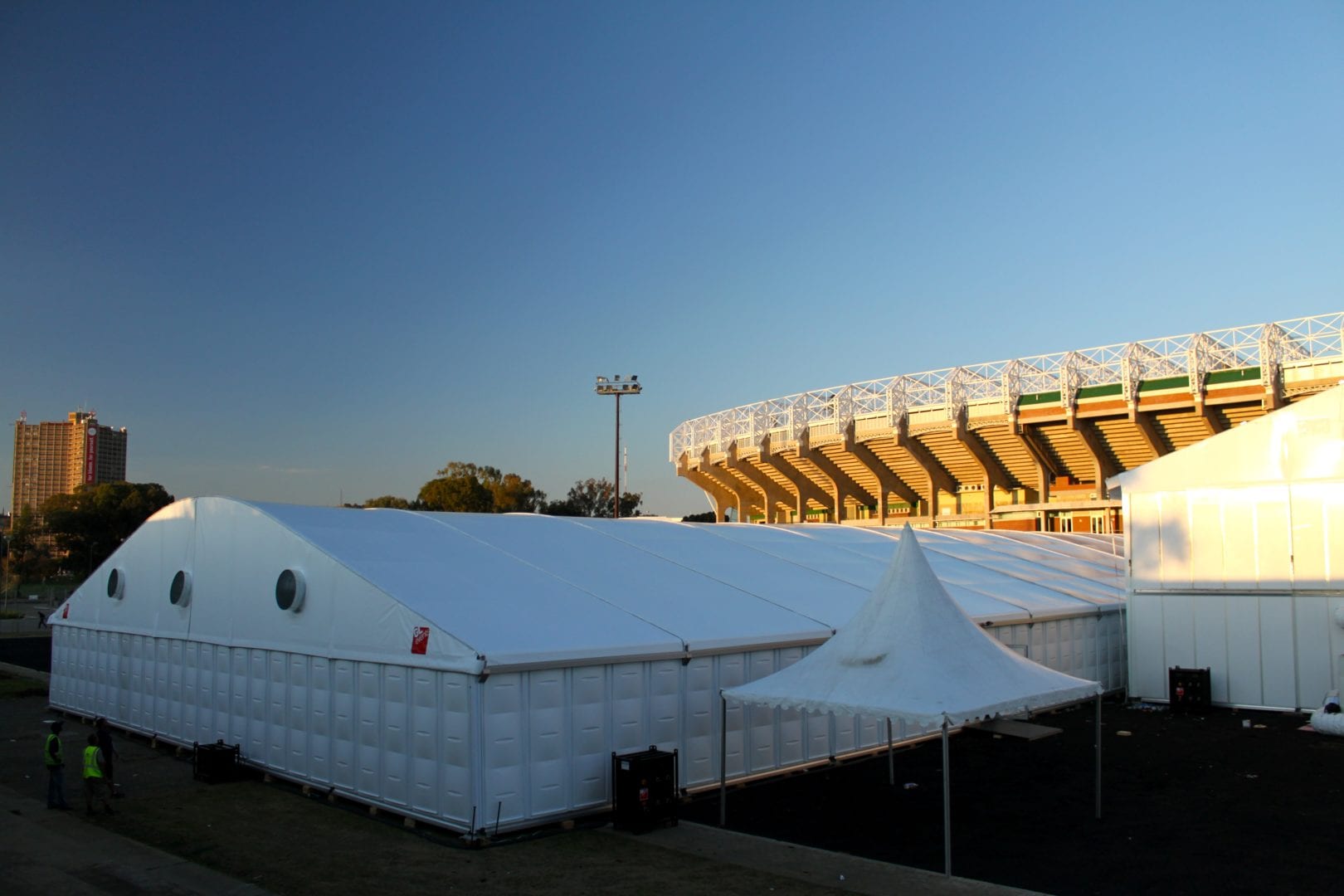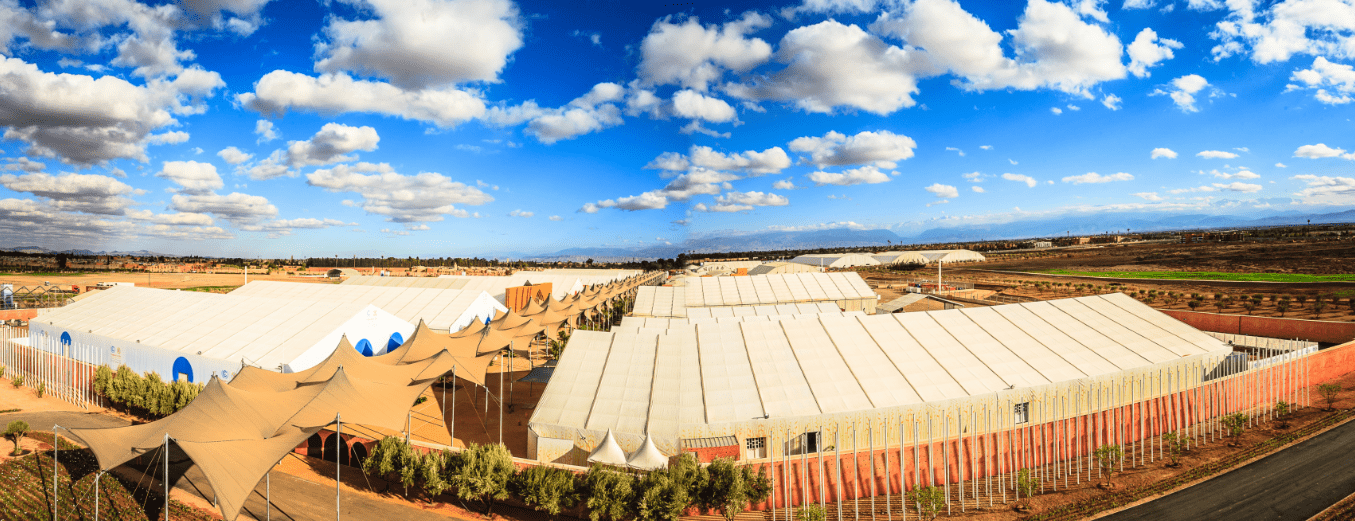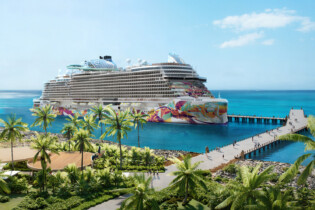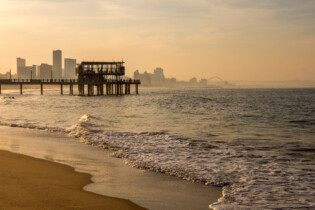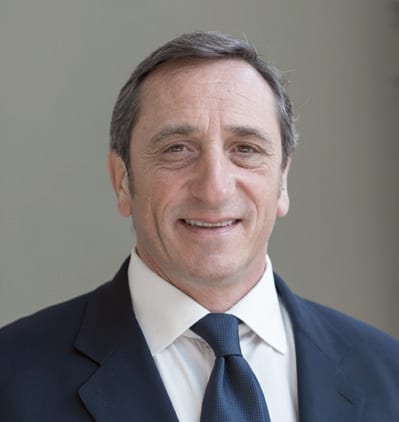 For anyone in the events industry, it must be a dream come true to steer a billion dollar company. Well, that’s exactly what Olivier Ferraton has been doing for the past decade. We caught up with him during his recent visit to the South African GL events office and he told us all about the vision of the company as a whole and some of their aspirations for GL events South Africa. The company has come a long way since 2010, but there is more to come and they’re definitely high on our watchlist for South African success stories.
For anyone in the events industry, it must be a dream come true to steer a billion dollar company. Well, that’s exactly what Olivier Ferraton has been doing for the past decade. We caught up with him during his recent visit to the South African GL events office and he told us all about the vision of the company as a whole and some of their aspirations for GL events South Africa. The company has come a long way since 2010, but there is more to come and they’re definitely high on our watchlist for South African success stories.
Q: What does GL events do to distinguish itself and stay ahead of the curve?
A: The company was created 39 years ago and we’ve developed a model which is unique in the event industry—our company consists out of three distinctive pillars.
We’ve got what we call the Live division which covers all the activities which are needed for the event and exhibition industry. From the creation of the event to the delivery of the event, we cover all the products which are necessary to build an event—from the carpet and electrical distribution to the structure, temporary structure, signage, air-conditioning, lighting and AV. That is a global offer. In the Live division, we have an event and digital communications consultancy agency called Live! by GL events.
The second pillar is built around venue management.We manage more than 40 venues worldwide—from the exhibition centre in Rio de Janeiro and São Paulo to the convention centres in Brussels and Barcelona.
The third activity of GL events is exhibitions. We have more than 350 exhibitions worldwide.
As I said, this is a little bit unique in the event industry, having said that, in certain parts of the world we’ll be stronger in the Live division, while in others we’ll be stronger in the venue business or the exhibition business. For example, we’ve got two activities in Spain—we manage the congress centre in Barcelona and in Madrid we sell long-term temporary structures for storage and sports, like tennis. We don’t have the others, we don’t have exhibitions, we don’t have furniture rental, we don’t have a signage business, etc.
If I take South Africa, we came here during the 2010 Soccer World Cup and we made a firm decision to stay in the country. Now it’s true that we’re currently only focussed on a small part of the Live division. We don’t have an agency, we don’t have a certain number of activities, we don’t have air-conditioning, we don’t have electrical distribution, we don’t have AV and we don’t have signage. We offer it, but it’s through partners. Similarly, we don’t have venue management and we don’t have exhibitions.When we came for the World Cup, it was 100% a business around the Live division, so we wanted to deliver what we were paid for, which was all the temporary installations for the World Cup. Then, when the World Cup finished, we started to think about how we could develop the rest of the business. Now for many different reasons, it didn’t materialise, but in the last six months we’ve renewed the world team to add a new injection of willingness, drive and leadership, which means that now we can rethink how GL events can go from where it is today to the GL events of South Africa, delivering a lot more than we do today.
Essentially we offer a one-stop shop for the exhibition industry, corporate businesses and event agencies. Worldwide, the public sector has to deal with the daily difficulties of maintaining, operating and developing their own facilities like congress centres and exhibition centres. This is exactly where we come in, it’s our job to manage the venues for the city/region, who will use it as an asset. For example, the relationship that we’ve got with the city of Rio de Janeiro or the government of São Paulo is fantastic, because the asset in Rio belongs to the city and in São Paulo it belongs to the state of São Paulo. In the same breath, it’s our core business—we sell the destination, we sell the venue and obviously we sell the services attached to it. They welcome our attitude and our investment because it could be an investment. To give you an idea, we invested €200 million in Brazil. It’s just a question of opportunity and the mindset of the local community.
In South Africa however, we are not yet visible, we mostly set up an exhibition stand with a booth, carpets, a few electrical lights, etc. That’s it. Now we need to improve on that, that’s why, in the last three months, we’ve turned around the organisation in terms of leadership to put the right people in the right place and we’re making sure that we can offer to South African market what we offer to the rest of the world.
I don’t know if we are the best in the event industry, even though I’m French and I can be arrogant (a bit like the South Africans with their rugby team), I don’t believe we are the best, I just believe that we put in the extra effort to be really close with our customer whether they are exhibitors, organisers, venues, public sector, private sector or corporate worlds. We try and understand what they need and deliver. If there’s one thing I’m proud of, or what we should be proud of within GL events, is that we deliver. Last year we were responsible for all the temporary installations for the COP22 in Marrakesh. We were handed 25 hectares, which was a dump in May 2016, on the 5th of October we delivered full temporary infrastructure for 20 000 delegates with a proper congress centre in place and all the facilities that you can think of from A to Z—from the ground preparation, electricity and water, to the erection of the temporary structure, decoration, IT, audiovisual, transportation of the food and even the food itself. So, whether it’s this type of event, whether it’s an exhibition—we deliver and this is what I think is appreciated by our customer. In other industries, you know what you’re going to get if you work with X or Y. We worked on the Olympic Games in Rio, we worked on the Euro in France where there were strikes, bad weather conditions and at that time, even bombings. So the whole environment was against us and when I visited UEFA, who the Euro belongs to, they said only one thing—thank you. Besides pricing, the quality of our events and all of these things, we deliver the expected level and I think that’s what the agencies like, that’s what the South African 2010 World Cup committee liked, that’s what some of the World Cup sponsors liked and that’s what exhibitors who have worked with us like, we deliver.
Q: With your head office in Lyon, how would you say the European event industry differs from the African event industry?
A: First of all, what we are today, which is a billion dollar company, we owe to the city of Lyon, because we’re managing a rugby team and the city has given us a long-term lease with a stadium, we’re managing the exhibition centre and the convention centre. So, Lyon, which is the second biggest city in France, has given us the opportunity to be who we are, so we’re quite proud of being an important company internationally and in France, but we want to stay in Lyon.
To answer your question, however, no, in what terms could it differ? The slogan of our company is “bring people together”. Whether you are in Europe, France, Johannesburg or in Durban, it makes sense anywhere to bring people together around a common subject—whether it is a congress around the medical industry or a corporate event. A couple of years ago I met the owner of an agriculture show between Johannesburg and Bloemfontein and what you sense when you talk to the owner of this show is the same passion I find in the organiser of the Parisian Nautique Show. So, the same passion of the organiser, the same willingness of the owner of the venues to make them visible, attractive and to bring business to it, can be found everywhere you go, so no, no-one is behind or in front. I don’t see a major difference.
Maybe I can just mention that I find it incredible that in Johannesburg, the city does not own an exhibition centre. In my opinion, this should be public property managed by a private company. The investment, which is a very long-term investment, should be made by the city or by the government or by the region.
Every market is made of X% national activity and a percentage of international activity. Obviously, some locations are more ideal from a logistics point of view. For example, Cape Town is a fantastic destination, but you can’t reach it from everywhere. Compare that to Lyon or Paris, which is accessible from everywhere, but the city is just as attractive. The authorities have made places like Paris and Lyon attractive from a logistics point of view as well. I mean it comes with transportation, it comes with logistics from a hotel’s point of view, capacity and from willingness.
Q: What is the South African events industry doing right/wrong and what should we be doing differently?
A: Well again I don’t have the arrogance to give advice, the only thing I could say is that I feel there could be a lot more development. There is opportunity, I mean from the wildlife to the wine to the sports to the beauty of the seaside and the mountains, your country is just magnificent. This asset should be put to work because there is a demand for that globally and making full use of that is important for the economy of a country.
You know we’ve got a show in Lyon which takes place every two years. The show is based around the food industry, because Lyon is famous for two things – the food and wine and the silk or the work on silk, especially the clothes. The event we’ve got is a major exhibition around the food industry. The impact for the region is €150 million. There are no free hotels in a 100km radius. The restaurants are happy because even if it’s a show where you can eat, the people who come to that event, which is around 80% French, 20% international, is making the city alive overall. So my view is that working with specialised people who understand what it means to promote a destination, to attract people to the venue, to the city itself is of the utmost importance.
Q: Describe your current role and how you got where you are today.
A: I am here to impulse, that’s my role. I give ideas, direction, leadership. I make sure that as the CEO of this group that wherever we go, we find teams which are motivated to go along with the strategy of our group and that are open to new activities.
Tonight I’m flying to Dubai, last week I was in Chile and Brazil, the week before, I was in Dubrovnik, Croatia, where we’re organising an event for Nissan and before that, I was in Ankara where we manage the congress. So my role is to impulse and make sure that people have the pleasure to wake up in the morning and say “we’re going to go for it”. Like a trainer, like a coach, you know I represent this group and that’s it. I am one of the shareholders so it’s part of my blood.
It’s funny because I was there when they were discussing the business, but I left and I came back ten years ago. I had my own life and I joined back to be the CEO ten years ago. It’s a real pleasure, our industry is fantastic because we work with passionate individuals. What I love the most is the fact that whether it’s a world cup, whether it’s a wedding, whether it’s an exhibition, whether you are in charge of building a booth for a corporate event or for a corporate company, whatever you do in the event industry, someone or a team will be responsible for the planning for one month, one year, five years, and this for an event that’s going to be (snap) so short. I’m just amazed by this amount of involvement and passion which for a delivery which is so short. So our role or our job is to make sure that for whoever is in charge, this moment will be just fantastic and I think once you understand that it’s part of our nature—when I say part of our nature, it’s the president, the vice-president and myself who enjoy receiving, enjoy making sure the people who’ll have an experience with us, have a good experience, a pleasant experience, an experience they would like to have again—you say wow, I want to follow up this experience. That’s my view.
Q: How important is technology in your current offerings?
A: Technology is not the right word, but offering digital expertise—in terms of social networks, in terms of understanding what the target of a company is and how you can add value with digital solutions. If I take the company Eucar whose doing an event, what’s their primary objective? Sell cars. Now how do you make sure that the events you’re doing will deliver the expected results? There are a lot of tools, there are a lot of activities, there’s a lot of ways of having some proof to say yes it will contribute. So I think the orientation of the group is more around the digital environment and to see how we can add value to the customer’s universe, their world, their objective, their target, I think that’s more important.
Q: What is your vision for the future?
A: I think we’ll just carry on the same path we did over the last 39 years, which means that we wouldn’t have a major bump in our growth and development, we had some more difficult years, but all and all if you look at our growth rate it’s like this (gestures a constant gradual upwards growth) now it’s not because we are good, it’s just because we fill a gap in the market, we answer to requirements and trends. Obviously, we will carry on in terms of the venue management, which is a key pillar of our activities, but the rest follows, because if you’ve got a venue you need some activities inside the venues. I think bringing the people together, which is our slogan, will still make sense in 10, 15, 30, 50 years, because even if technology evolves with the internet and things like this, people need to meet, people need to see each other. So the longevity of what our company’s main goal is, helps us keep current no matter what the year.


